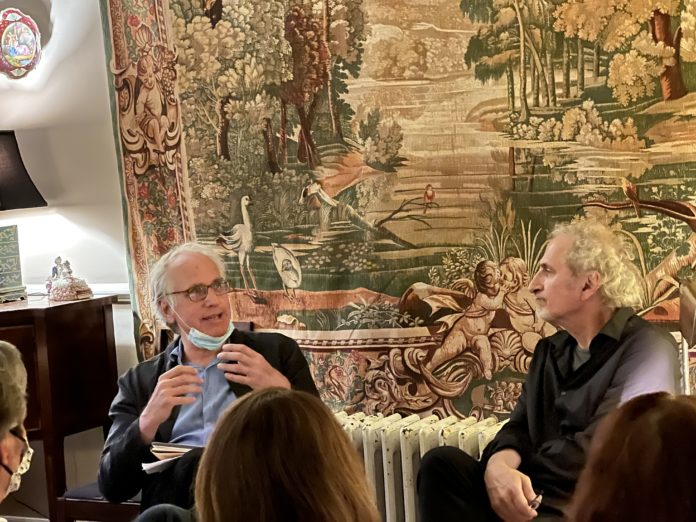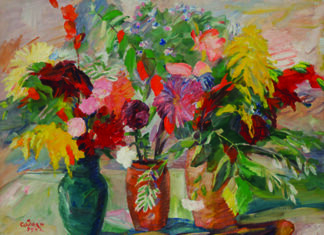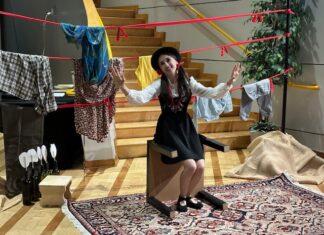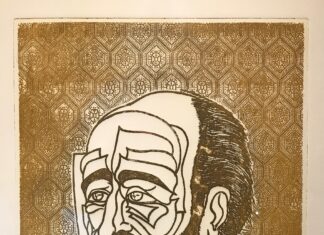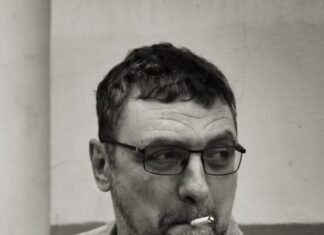CAMBRIDGE, Mass. — Peter Balakian is one of the most masterful English-language poets Armenians have as a voice in the contemporary world. The Boston area had a rare opportunity on May 17 to hear him recite some of his newest works and engage in a dialogue with multitalented writer Askold Melnyczuk. The literary evening was hybrid in nature, allowing a broader audience on Zoom. However, people who came in person had the extra benefit of enjoying the refined atmosphere of a historic Victorian mansion, the home of Marceline Donaldson and Rev. Dr. Robert Bennett, in Cambridge, Mass. The event was cosponsored by the Grolier Poetry Book Shop and the Harvard Square Business Association.
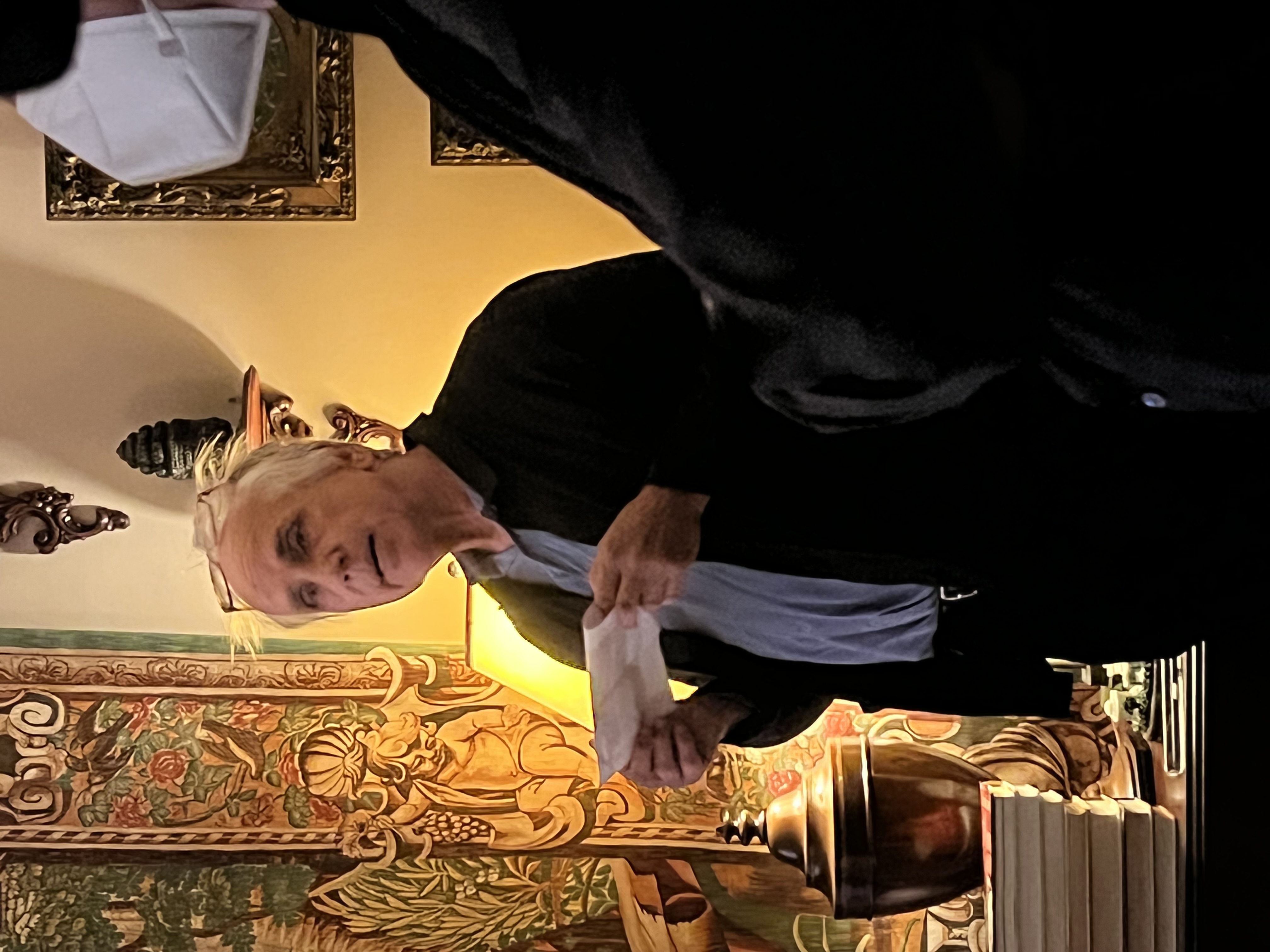
Melnyczuk introduced the Pulitzer-prize-winning poet and as he pointed out important aspects of Balakian’s work in his witty and pithy manner, Melnyczuk also guided listeners to the essence of what makes a poet significant, defining Balakian as “someone whose work both fully inhabits and yet transcends its moment, becoming what Pound described as the news that stays news.” Moreover, Melnyczuk pointed out the “signature sound” and an aspect to the method of Balakian’s work, declaring: “Hovering, densely allusive, and darting—is how a characteristic Balakian poem proceeds.”
Readers, Melnyczuk continued, “can zip from reflections on Hegel’s time sense to licking ‘the sweet brown hoisin’ sauce on their lips, to an oblique reference to Delmore Schwartz’s classic story ‘In Dreams Begin Responsibilities’ to a memory of the Syrian grocers who knew his grandparents. The startling juxtapositions have an uncanny rightness: ‘Sylvia Plath was molten ore pouring from the hot pot/sizzling with pods and smashed heads of prawn.’ The similes aim to convey the most nuanced and refined sensations, so reading Mandelstam is ‘like reading the wings of a viceroy on blue stone.’ Their effect is to quicken our own responses, to summon us to attention, to, in short make us try to be smarter.”
Balakian uses a layering process, Melnyczuk proclaimed, even “a kind of sedimentary poetics.”
After this introduction, which itself approached poetry in its phrasings and language, prepped the audience, Balakian proceeded to read a selection of poems from his newest volume. Many of the poems had Armenian connections or reverberations, ranging from the experiences of Balakian’s grandmother Nafina, who continues to inspire Balakian even from the other world, and his great-uncle Krikoris Balakian, to his own childhood memories and meditations on fruits and vegetables.
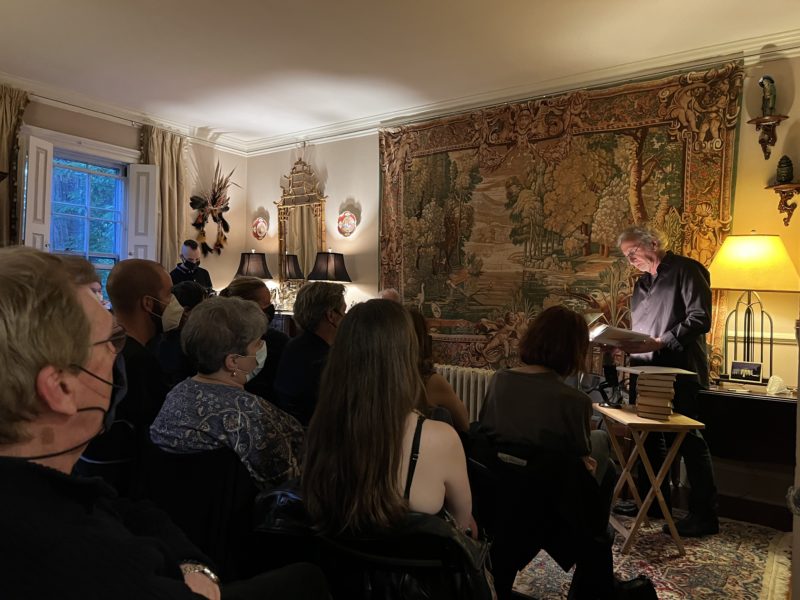
For the first time, Balakian read in public from the eponymous multi-sectioned long poem “No Sign” of his new book, a wide-ranging dialogue between a couple, a man and woman, speaking on big themes. Melnyczuk noted the use of quick cuts and cinematic quality to the poem in the dialogue between the two writers that followed Balakian’s readings. Balakian noted that he incorporated his dramaturgical sense of form into the poem, and that drama and poetry are close in their approach to language because they are “spare, stripped and naked” unlike fiction. He added that he is interested in creating sequencing in the poem’s structure and weaving in disparate threads.



